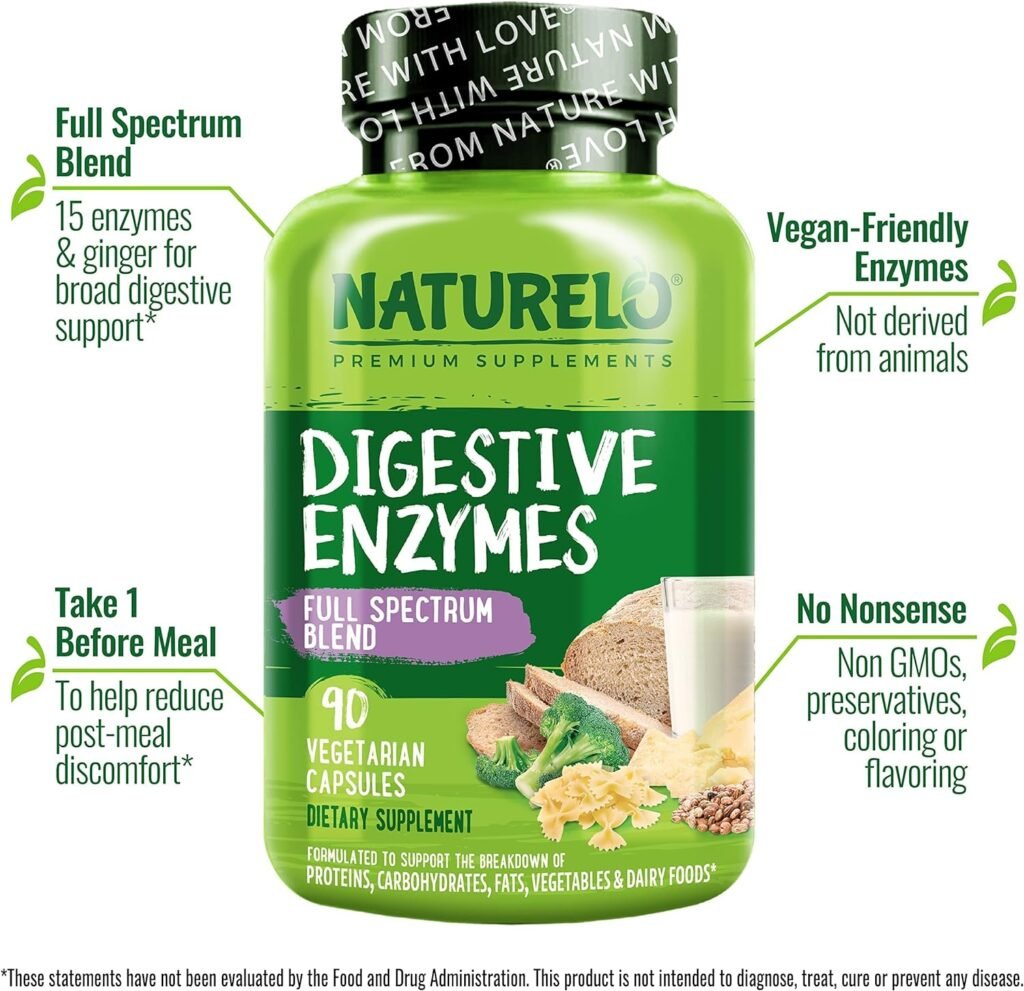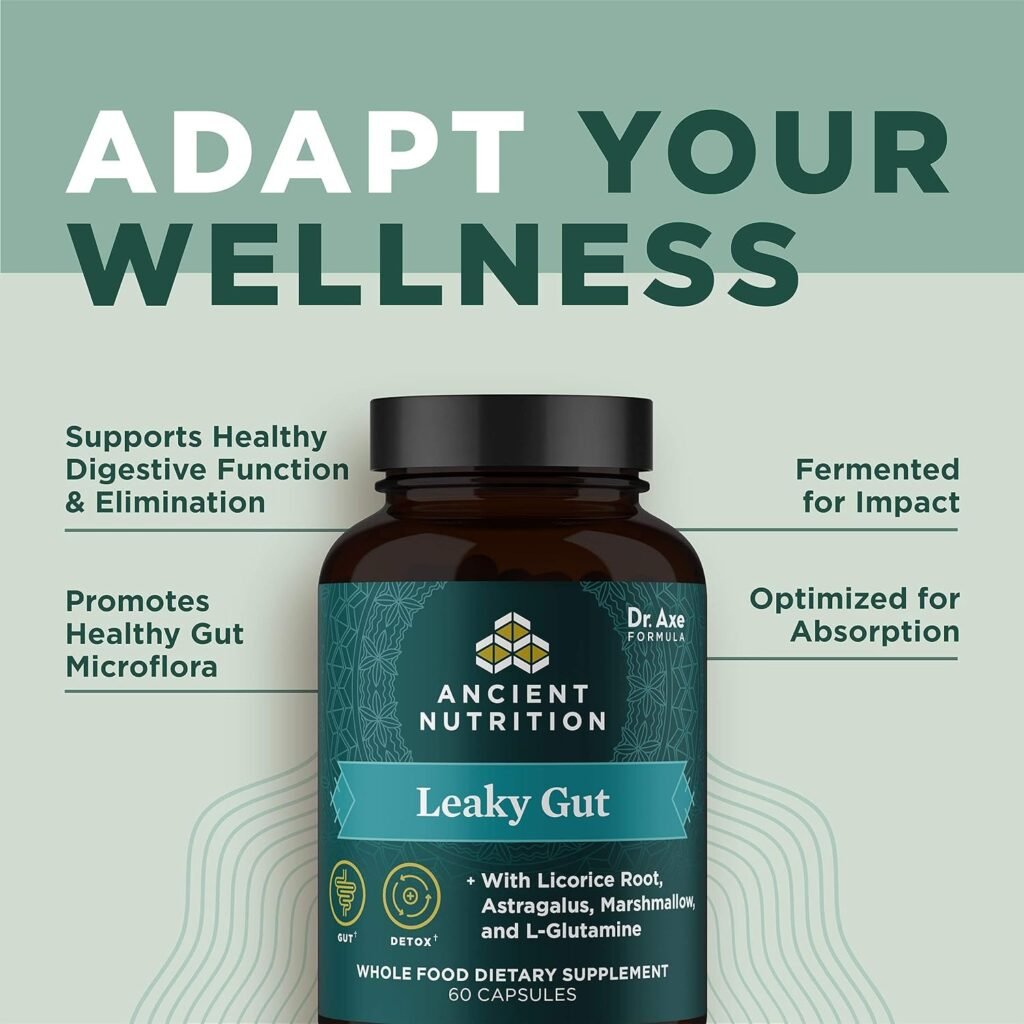This post may contain affiliate links. Which means I may receive a commission for purchases made through links, at no cost to you. I will only recommend products that I have personally used. Learn more on my Disclaimer Page and Privacy Policy Page
Improving gut health is essential for overall well-being and can be achieved through several lifestyle and dietary changes. Start by incorporating more fiber-rich foods into your diet, such as fruits, vegetables, whole grains, legumes, and nuts, as fiber promotes regular bowel movements and supports a healthy microbiome. Fermented foods like yogurt, kefir, sauerkraut, kimchi, and kombucha are rich in beneficial probiotics that help restore and maintain a diverse array of gut bacteria. Additionally, reducing intake of processed foods, sugar, and artificial sweeteners while prioritizing whole, nutrient-dense foods can positively impact gut health. Managing stress through relaxation techniques like meditation, deep breathing, and yoga can also benefit gut health, as stress can disrupt digestion and contribute to gastrointestinal symptoms. Lastly, staying hydrated, getting regular exercise, and getting enough sleep are crucial for supporting a healthy gut microbiome. By adopting these holistic approaches to gut health, you can improve digestion, boost immunity, and enhance overall wellness.

Ah, good gut health—the secret sauce for feeling fabulously alive and kicking! Picture this: your gut, your body’s trusty sidekick, is like a bustling metropolis of happy microbes, working tirelessly to keep things running smoothly. When your gut is in harmony, you feel like a superhero—energetic, vibrant, and ready to conquer the world! You strut through your days with a skip in your step, a twinkle in your eye, and a belly full of belly laughs because, hey, life’s too short for anything less than gut-tastic joy! So, let’s raise a toast to good gut vibes—where every bite is a high-five for your insides, and every smile radiates from the inside out. Here’s to feeling gloriously alive, one happy gut at a time!
Several supplements can support gut health and promote a balanced microbiome. Here are some commonly recommended options:
- Probiotics: Probiotic supplements contain beneficial bacteria that help restore and maintain a healthy balance of gut microbiota. Look for supplements containing various strains of Lactobacillus, Bifidobacterium, and other probiotic species known to support digestive health.
- Prebiotics: Prebiotic supplements contain indigestible fibers that serve as fuel for beneficial gut bacteria, promoting their growth and activity. These fibers include inulin, oligosaccharides, and resistant starch, which can be found in supplement form or naturally in foods like chicory root, onions, garlic, bananas, and whole grains.
- Digestive Enzymes: Digestive enzyme supplements can aid in the breakdown and absorption of nutrients, helping to alleviate digestive discomfort and improve nutrient absorption, especially for individuals with conditions like pancreatic insufficiency or enzyme deficiencies.
- Glutamine: Glutamine is an amino acid that supports gut health by promoting the integrity of the intestinal lining and supporting the repair of damaged tissues. It may help alleviate symptoms of leaky gut syndrome and improve gut barrier function.
- Fish Oil: Omega-3 fatty acids found in fish oil supplements have anti-inflammatory properties and may help reduce inflammation in the gut, supporting overall gut health and function.
- Marshmallow Root: Marshmallow root supplements contain mucilage, a gel-like substance that coats and soothes the lining of the digestive tract, helping to alleviate symptoms of heartburn, indigestion, and gastritis.
- Deglycyrrhizinated Licorice (DGL): DGL supplements contain a form of licorice root that has been processed to remove glycyrrhizin, a compound that can cause side effects. DGL helps support a healthy mucosal lining in the digestive tract and may help relieve symptoms of acid reflux and gastritis.
- Aloe Vera: Aloe vera supplements contain compounds that have been shown to support digestive health by reducing inflammation, promoting healing of the intestinal lining, and supporting bowel regularity.

Signs of poor gut health can manifest in various ways, offering important clues about the state of your digestive system and overall well-being. Persistent digestive issues like bloating, gas, constipation, or diarrhea may indicate an imbalance in gut bacteria or impaired gut function. Food intolerances or sensitivities, characterized by discomfort or adverse reactions after consuming certain foods, may suggest inflammation or compromised gut barrier function. Immune system issues such as frequent infections, allergies, or autoimmune conditions could signal disruptions in gut-immune communication. Mood disorders like anxiety, depression, or brain fog may stem from the intricate gut-brain connection, where an unhealthy gut can lead to imbalances in neurotransmitters and hormones. Skin problems like acne, eczema, or psoriasis may be linked to gut inflammation and dysbiosis. Persistent fatigue, unexplained weight changes, and chronic inflammation may also be indicative of poor gut health. Recognizing these signs can prompt proactive measures to restore gut balance and promote overall health and vitality.
Bad gut health can manifest in various symptoms and signs that indicate an imbalance in the gut microbiome or disruption to digestive function. Some common indicators of poor gut health include:
- Digestive Issues: Digestive symptoms such as bloating, gas, constipation, diarrhea, abdominal pain, and indigestion may be signs of gut dysfunction. These symptoms can occur sporadically or persistently and may indicate problems with digestion, absorption, or gut motility.
- Food Intolerances: Intolerance or sensitivity to certain foods, such as gluten, dairy, or FODMAPs (fermentable oligosaccharides, disaccharides, monosaccharides, and polyols), may arise due to gut inflammation, impaired gut barrier function, or altered microbiome composition.
- Immune System Issues: The gut plays a crucial role in immune function, and poor gut health can weaken the immune system, leading to increased susceptibility to infections, allergies, autoimmune conditions, and inflammatory diseases.
- Mood Disorders: The gut-brain connection, known as the gut-brain axis, influences mood and mental health. Poor gut health has been linked to mood disorders such as anxiety, depression, and stress, as well as cognitive dysfunction and impaired brain function.
- Skin Problems: Skin conditions like acne, eczema, psoriasis, and rosacea may be linked to gut imbalances and inflammation. The gut-skin axis connects the gastrointestinal tract with the skin, and disruptions in gut health can manifest as skin issues.
- Fatigue and Low Energy: Chronic fatigue, low energy levels, and general feelings of malaise may be related to poor gut health, as nutrient absorption, energy production, and hormone regulation are influenced by gut function.
- Weight Changes: Unexplained weight loss or weight gain may occur due to disruptions in gut health, affecting metabolism, appetite regulation, and nutrient absorption.
- Chronic Inflammation: Chronic inflammation in the gut can lead to systemic inflammation throughout the body, increasing the risk of chronic diseases such as cardiovascular disease, diabetes, and cancer.
It’s important to note that these symptoms can vary in severity and may be indicative of other underlying health conditions. If you experience persistent or concerning symptoms of poor gut health, it’s crucial to consult with a healthcare professional for proper evaluation and diagnosis.
Probiotics

Probiotics offer a multitude of benefits for gut health, acting as beneficial bacteria that work to restore balance and harmony within the gut microbiome. By increasing the population of friendly bacteria and suppressing the growth of harmful pathogens, probiotics promote microbial diversity and stability, which is essential for optimal digestive function. These beneficial microbes aid in the digestion and absorption of nutrients, helping to alleviate symptoms of digestive discomfort such as bloating, gas, and irregular bowel movements. Moreover, probiotics strengthen the intestinal barrier, acting as a protective shield against toxins and pathogens, and modulate immune function, enhancing the body’s ability to defend against infections and reduce inflammation. Incorporating probiotic-rich foods or supplements into your daily routine can support gut health, promote overall well-being, and contribute to a happier, healthier digestive system.
Digestive Enzymes

Digestive enzymes are essential for everyone because they play a critical role in breaking down the food we eat into smaller, absorbable molecules that the body can utilize for energy, growth, and repair. While the body naturally produces digestive enzymes in the pancreas, stomach, and small intestine, factors such as age, stress, poor diet, and certain health conditions can impair enzyme production and function. Supplementing with digestive enzymes can support optimal digestion and nutrient absorption, alleviating symptoms of digestive discomfort such as bloating, gas, and indigestion. Additionally, digestive enzymes can help individuals maximize the nutritional benefits of their diet, ensuring that essential vitamins, minerals, and other nutrients are effectively absorbed into the bloodstream for use by the body. Whether you’re looking to enhance digestive function, alleviate digestive symptoms, or optimize nutrient absorption, incorporating digestive enzyme supplements into your daily routine can benefit overall health and well-being.
L-glutamine, Marshmallow root, Licorice root

L-Glutamine: L-glutamine is an amino acid that supports gut health by promoting the integrity of the intestinal lining and supporting the repair of damaged tissues. It may help alleviate symptoms of leaky gut syndrome and improve gut barrier function.
Marshmallow Root: Marshmallow root supplements contain mucilage, a gel-like substance that coats and soothes the lining of the digestive tract, helping to alleviate symptoms of heartburn, indigestion, and gastritis.
Deglycyrrhizinated Licorice (DGL): DGL supplements contain a form of licorice root that has been processed to remove glycyrrhizin, a compound that can cause side effects. DGL helps support a healthy mucosal lining in the digestive tract and may help relieve symptoms of acid reflux and gastritis
As someone deeply rooted in the world of holistic medicine, I’ve witnessed firsthand the profound impact that gut health has on overall well-being. Our gut is not just a mere digestive organ but a complex ecosystem teeming with trillions of bacteria, fungi, and other microorganisms that play a pivotal role in maintaining harmony within our bodies. From regulating digestion and nutrient absorption to modulating immune function and even influencing mental health, the gut is truly the cornerstone of holistic health. Through my years of practice, I’ve seen countless individuals transform their lives by prioritizing gut health—by nourishing their bodies with whole, nutrient-dense foods, embracing mindful eating practices, and incorporating gut-supportive supplements like probiotics and digestive enzymes. By taking proactive steps to care for their gut, they’ve experienced profound improvements in digestion, energy levels, mood, and overall vitality.
In the realm of holistic medicine, the gut is often referred to as the “second brain,” and for a good reason. Our gut communicates directly with our brain through the intricate gut-brain axis, influencing not just our physical health but also our mental and emotional well-being. As a holistic practitioner, I’ve seen how imbalances in gut health can manifest as a myriad of symptoms, from digestive issues like bloating and gas to mood disorders like anxiety and depression. By addressing the root cause of these symptoms—often stemming from gut dysbiosis, inflammation, or poor dietary choices—we can support the body’s innate healing mechanisms and restore balance from within. Through personalized dietary and lifestyle interventions, along with targeted supplementation and mind-body practices like meditation and stress management, individuals can embark on a transformative journey toward optimal gut health and holistic wellness. I hope you enjoy these products as much as we do!

